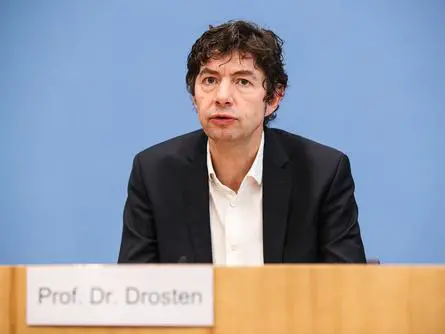In the "very near future," coronavirus antibody tests that could determine who has already had an infection would be available, said Christian Drosten, head of the Institute of Virology at the Charite University Hospital in Berlin, on Wednesday.
The tests would likely show a rising number of medical staff who "already have antibodies and can consider themselves immune or less susceptible," said Drosten in the daily podcast by broadcaster NDR.
After an infection with the coronavirus, it would take about 10 days for antibodies to form, and after two to three weeks there is a very clear antibody in the blood, Drosten explained.
Unfortunately, there are no indications or reliable studies on how high the rate of completely unnoticed infections is, said Drosten. The first antibody tests have just been developed in Germany.
So far, only suspected cases and those recommended by doctors are being tested in Germany with a throat or nasal swab. Random testing is currently not possible because of limited capacities, Drosten said.
Samples taken from the throat in the first week with symptoms are "very reliable" but are no longer completely reliable in the second week, warned Drosten, who was among the people who discovered SARS (severe acute respiratory syndrome) in 2003.
"Patients still have symptoms, but the test may not be able to detect the virus in the throat," Drosten said. Not because the test are not good, but because the virus is no longer present in the throat, but in the lungs.
Even patients with "very mild courses," -- meaning the infected notice almost nothing of their illness -- could still have "quite a lot" of virus in their lungs, according to Drosten.
Drosten stressed that Germany is already relatively quick in evaluating the tests. "In my experience, most patients get their results the next day at the latest." Germany also has a very high testing capacity. "The reason why we have such a low apparent mortality rate in Germany at the moment is because we test so much."
The conducted tests show that "our isolation measures, which we have now largely implemented in society, are already having an effect," Drosten concluded.
(ASIA PACIFIC DAILY)
 简体中文
简体中文

